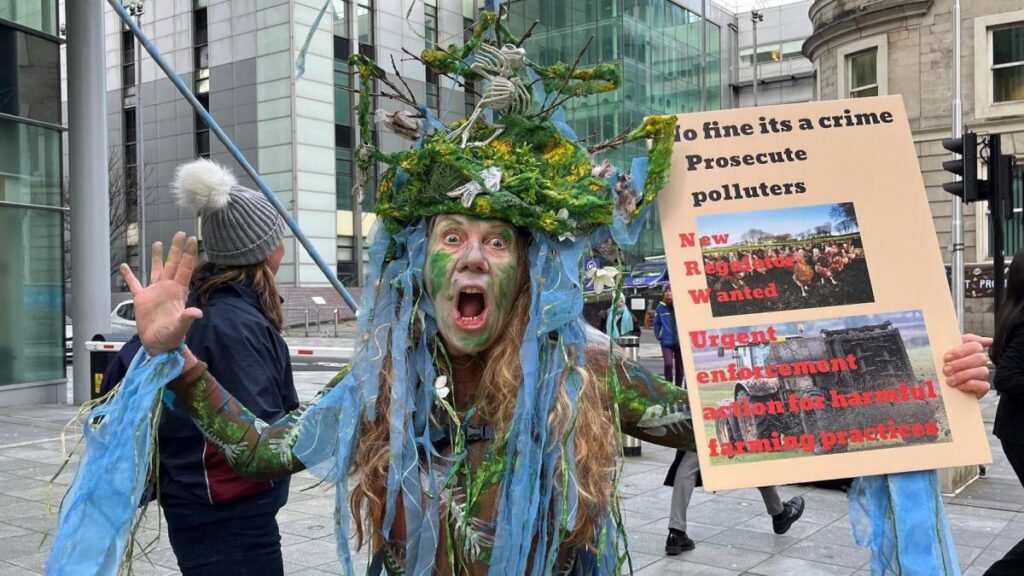The government has won a legal battle brought by environmentalists over pollution of the River Wye.
Campaign group River Action claims the Environment Agency is not getting tough enough on farmers who spread too much chicken manure on their fields.
But the High Court ruled on Friday that the EA and the UK government had properly implemented the law and there was no need to impose sanctions on farmers for every breach.
River Action says that although it lost the case, it believes it has brought about changes in the way the Environment Agency enforces agricultural laws.
The Environment Agency said it had won the case on all counts.
“We are working to implement a more preventative, advisory-focused approach to monitoring and enforcement,” the spokesman said, adding: “Anyone who breaches environmental laws will face enforcement action, including prosecution.”
River Action said the use of chicken manure had contributed to the Wye's official environmental condition being downgraded to “deteriorating” last year.
River Action filed suit alleging that the decline in the Wye's water levels was due in part to the Environment Agency's failure to properly enforce rules known as the Agricultural Water Rules.
These rules, introduced in 2018, are aimed at preventing fertiliser from running off farmers' fields into streams and rivers.
Fertilizers such as chicken manure add nutrients such as phosphorus and nitrogen to rivers, which accelerate the growth of algae and other plants, a process called eutrophication, which deprives other organisms such as fish of oxygen.
River Action had argued that the Environment Agency, under pressure from farmers, had deliberately ignored the rules and allowed farmers to spread excessive amounts of chicken manure on their fields as fertiliser, which was unlawful.
Research from Lancaster University has found that 70% of phosphate in the Wye Basin comes from agriculture.
Not all of this is due to the poultry industry, but it has seen the most dramatic expansion in the region, with over 20 million chickens being raised here at any one time.
In ruling in favour of the government, Judge Dove acknowledged that there was pollution in the river.
“In this case there is no dispute that there is a problem with the water quality of the River Wye relating to the exceedance of phosphate limits within the catchment.”
He acknowledged River Action's concerns that there were insufficient penalties for farmers who breached the rules, but added that the law did not require the Environment Agency to impose sanctions for every breach.
So far there has been one prosecution under the agriculture rules, but there are 11 more prosecutions against farmers for causing pollution under different environmental regulations.
“Thanks to River Action's legal action, the Environment Agency has changed the way it approaches enforcement of the water agriculture rules,” River Action chairman Charles Watson said after Friday's ruling.
“While the judge said the latter point was a basis for rejecting RiverAction's belief that the EA had acted unlawfully, there is widespread evidence that agricultural regulations are still being broken across the Wye Basin and we are concerned that the EA has still not been held to account for failing to enforce the law.”
Along with other campaigners, River Action continues to call for the creation of Water Protection Zones, which would give regulators the power to monitor and control potential pollutants.
One of the basin's largest chicken producers is Avara Foods, which processes two million chickens a week at its Hereford plant. The company is being sued by law firm Leigh Day for contributing to the pollution of the River Wye.


